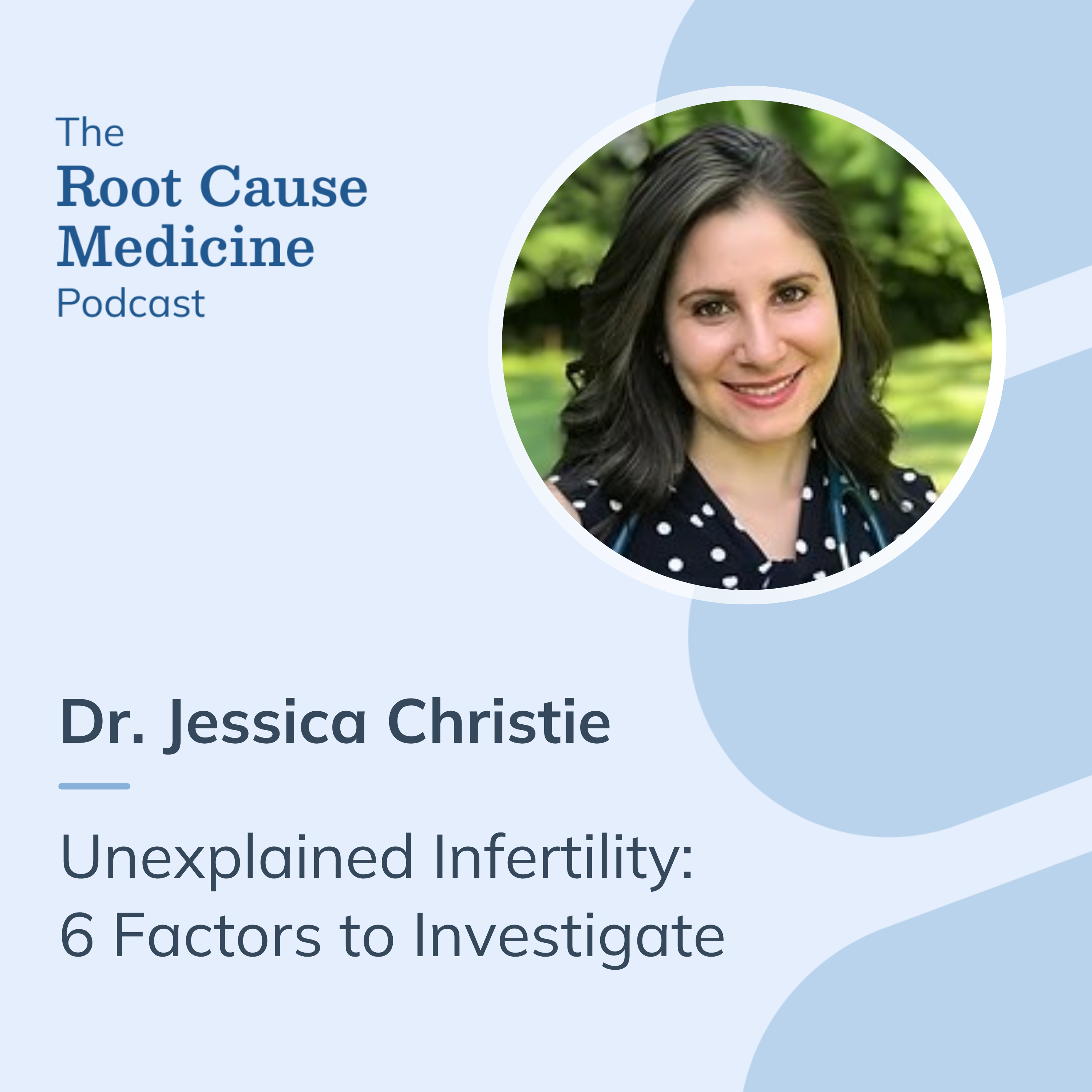Patients with Hashimoto's may experience a decreased quality of life. This condition often affects middle-aged women and is responsible for a significant portion of hypothyroidism cases. It can present with symptoms such as chronic fatigue, weight issues, digestive problems, and irritability. Regular testing using functional labs can help identify factors that might contribute to the symptoms associated with this condition, potentially helping to manage these symptoms and support a better quality of life.
[signup]
What is Hashimoto's Disease?
Hashimoto's disease is an autoimmune condition that affects the thyroid gland. The thyroid is a small gland in the neck that produces hormones that regulate many bodily functions, including metabolism, heart rate, and body temperature. Hashimoto's disease is a common cause of hypothyroidism, a condition where the thyroid is underactive. Since this is an autoimmune condition, the body's immune system mistakenly targets the thyroid gland, leading to inflammation and damage.
What Causes Hashimoto's Disease?
The exact causes of Hashimoto's Disease are not fully understood, but a combination of genetic and environmental factors is thought to increase the risk for this autoimmune disorder. Some environmental factors that may contribute to Hashimoto's disease include genetic predisposition, exposure to certain toxins, infections, nutritional imbalances, gut health, and chronic stress. Family history is an important consideration when assessing for autoimmune conditions as there is often a family history of autoimmunity, including Hashimoto's.
Infections from Helicobacter Pylori and Yersinia enterocolitica have been associated with autoimmune responses that may lead to conditions such as Hashimoto's. Exposure to PCBs found in coolants, BPA found in plastics, PBDEs found in flame retardants, pesticides, and other environmental toxins can potentially disrupt thyroid function and contribute to inflammation, which may be linked to this disease.
Another potential factor is imbalances in specific nutrients, such as selenium, Vitamin D, and iodine, which may increase the risk of Hashimoto's disease. The health of the gut microbiome is also thought to play a role in Hashimoto's disease. Dysbiosis, or an imbalance in the gut bacteria, can trigger inflammation and may increase the risk of autoimmune diseases. Lastly, chronic stress can impact the endocrine and immune systems, potentially triggering Hashimoto's. It is important to note that not everyone with these risk factors will develop Hashimoto's disease.
Hashimoto Disease Symptoms
The symptoms of Hashimoto's relate to imbalances in the thyroid and how those imbalances affect the rest of the body. This condition can result in a decrease in thyroid hormone production, which may cause a variety of symptoms, such as weight gain, fatigue, headaches, thinning or dry hair, nails, and skin, feeling cold all the time, irregular periods, puffiness or fluid retention, fertility problems, slow digestion and constipation, brain fog, depression, aching muscles and joints, and loss of muscle strength and tone.
In some cases, Hashimoto's disease can also cause an enlarged thyroid (goiter) and thyroid nodules. If hypothyroidism is not managed, it may contribute to additional complications, such as elevated cholesterol, heart disease, high blood pressure, pregnancy complications, and myxedema. A Hashimoto's flare, especially early in the disease process, can also cause a hyperthyroid state, which is when the thyroid gland secretes too much thyroid hormone into the bloodstream, leading to symptoms such as fatigue, heat intolerance, irritability, rapid heartbeat, sleep problems, and anxiety.
Top Labs To Run Bi-Annually On Your Hashimoto Disease Patients
Labs are important to run regularly for patients with Hashimoto's to assess for disease progression, improvements, and effectiveness of management strategies. Here are some commonly used functional medicine labs for Hashimoto's:
Thyroid Panel
A comprehensive thyroid panel is often the first go-to for patients with Hashimoto's, as this condition involves the thyroid and its hormones. This panel, assessed from a blood sample, measures all the related thyroid hormones and antibodies associated with this condition. The markers include TSH, T3 (free and total), T4 (free and total), reverse T3, thyroglobulin, and thyroid peroxidase antibodies. In Hashimoto's thyroiditis, one or both of the antibody levels may be elevated, indicating the autoimmune process is occurring. They can be used to assess the effectiveness of management strategies in supporting balanced antibody levels and hormone levels.
Micronutrient Panel
Micronutrients are vital in maintaining optimal body function and physiology, including thyroid physiology. Imbalances in these various nutrients can cause disruptions in thyroid function and may increase the risk of Hashimoto's. Research indicates that excessive iodine intake and deficiencies of selenium, iron, and Vitamin D are implicated in this condition. Therefore, regularly testing micronutrient levels can help investigate any nutritional imbalances, allowing for dietary strategies that support body functions. This micronutrient panel is completed through a blood sample and provides the measurement of various nutrients, antioxidants, essential fatty acids, and minerals essential for proper thyroid function.
GI-MAP
The gut microbiome is involved with many of our body systems, and an imbalance can cause issues with digestion, absorption, immune system, inflammation, and hormone regulation. Microbiome disruptions can also lead to autoimmunity and have been linked with Hashimoto's. This stool test does a thorough analysis of microbiome health, including imbalances, diversity, and infections such as Helicobacter pylori, Yersinia enterocolitica, and other pathogens that may cause dysbiosis (overgrowth of pathogens in the microbiome) and have been associated with Hashimoto's. The test results can provide valuable information into the microbiome's health if Hashimoto's symptoms persist and should be considered to be completed regularly as the microbiome is constantly changing.
Comprehensive Cortisol
Cortisol is the principal stress hormone and can be measured throughout the day to evaluate stress response. Stress has been indicated in the development of Hashimoto's. Increased stress levels can produce inflammatory reactions that may reduce the function and production of thyroid hormones. This cortisol test is completed through a saliva sample taken four times throughout the day, giving a more complete picture of the stress response. Assessing for these variations in stress levels allows practitioners to support balanced cortisol levels at their specific time, thus helping to manage stress responses that may impact the thyroid.
Gluten Panel
Gluten has a similar appearance to transglutaminase, an enzyme that is condensed around the thyroid gland. Within autoimmune patients, the body may mistakenly target the thyroid gland in the presence of gluten antibodies. A gluten panel can help patients who are adhering to a gluten-free diet for their autoimmune condition assess levels of gluten reactivity. Regular assessments of gluten reactivity can help patients make dietary adjustments that may support their well-being.
Environmental Toxin Screen
Various toxins exposure, such as heavy metals, plastics, and pesticides, may contribute to the development of Hashimoto's. Since these toxins are widespread, testing regularly for these toxins can provide insights for patients at risk for this condition or those exhibiting symptoms. These toxins can affect the body's systems, including the thyroid system, and should be analyzed to help manage the risk and associated symptoms of Hashimoto's disease. This screening can be done by analyzing a hair sample.
[signup]
Summary
Hashimoto's is an autoimmune condition that produces an immune response to target the thyroid gland, causing inflammation and decreased thyroid function that can potentially impact day-to-day life in individuals with this condition. There are specific triggers to this disease, such as environmental chemicals and nutritional deficiencies, that can be regularly screened to help people with this condition manage their symptoms. Functional labs are a helpful tool for this screening process to provide patients with the information needed to support their thyroid function and overall health.










%201.svg)









.png)